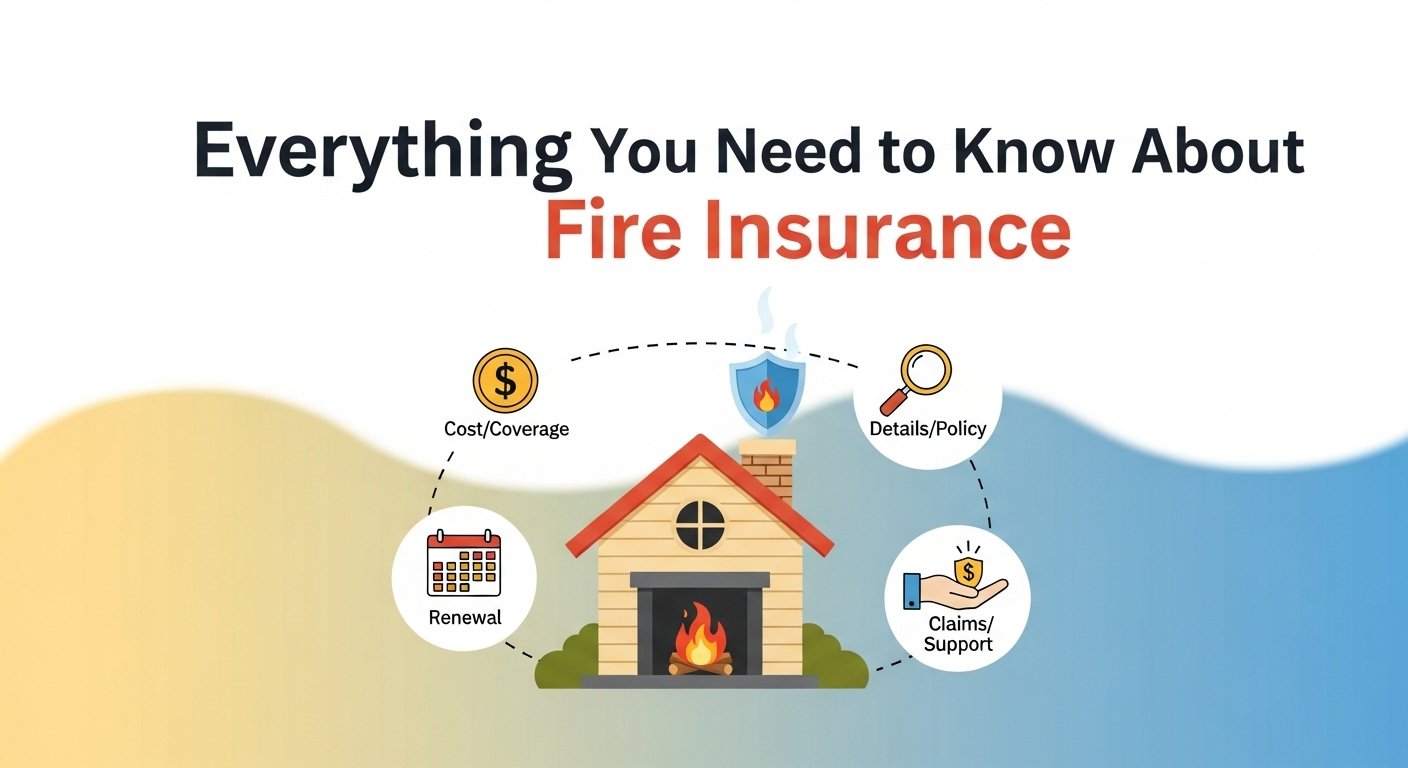Fire insurance is a type of property insurance that covers damage and losses caused by fire. It is designed to help homeowners, renters, and business owners recover financially after a fire incident. Here’s a comprehensive guide to understanding fire insurance:

1. What Does Fire Insurance Cover?
Fire insurance typically covers:
- Damage to the Property: Repairs or rebuilding costs for structures damaged by fire.
- Personal Belongings: Replacement or repair of furniture, electronics, clothing, and other personal items.
- Additional Living Expenses (ALE): Costs for temporary housing, meals, and other living expenses if the property is uninhabitable.
- Liability Coverage: Protection against legal claims if the fire damages someone else’s property or causes injury.
- Other Perils: Some policies may cover damage caused by smoke, water, or firefighting efforts.
2. What Is Not Covered?
Fire insurance may exclude:
- Intentional Fires: Damage caused by arson or intentional acts.
- War or Nuclear Hazards: Losses due to war, nuclear incidents, or similar events.
- Vacant Properties: Damage to properties left vacant for an extended period.
- Earthquakes or Floods: Separate policies are needed for these perils.
- Negligence: Damage resulting from poor maintenance or negligence.
3. Types of Fire Insurance Policies
- Standard Fire Policy: Covers basic fire-related damages.
- Comprehensive Policy: Offers broader coverage, including theft, natural disasters, and other perils.
- Specific Policy: Covers a fixed amount, regardless of the actual loss.
- Floating Policy: Covers multiple properties under a single policy.
- Consequential Loss Policy: Covers indirect losses, such as business interruption due to fire.
4. Factors Affecting Fire Insurance Premiums
- Location: Proximity to fire stations, hydrants, and high-risk areas (e.g., wildfire zones).
- Construction Materials: Fire-resistant materials may lower premiums.
- Property Value: Higher property values typically mean higher premiums.
- Safety Measures: Smoke detectors, fire extinguishers, and sprinkler systems can reduce costs.
- Claim History: A history of frequent claims may increase premiums.
5. How to File a Fire Insurance Claim
- Notify the Insurer: Inform your insurance company immediately after the fire.
- Document the Damage: Take photos and videos of the damage.
- Prevent Further Damage: Take reasonable steps to protect your property from additional damage.
- Submit a Proof of Loss: Provide a detailed list of damaged items and their value.
- Work with an Adjuster: An insurance adjuster will assess the damage and determine the payout.
- Receive Payment: Once approved, you’ll receive compensation based on your policy terms.
6. Tips for Choosing Fire Insurance
- Assess Your Needs: Determine the coverage amount based on your property’s value and contents.
- Compare Policies: Shop around for the best rates and coverage options.
- Read the Fine Print: Understand exclusions, deductibles, and claim procedures.
- Bundle Policies: Consider bundling fire insurance with other policies (e.g., home or auto) for discounts.
- Review Annually: Update your policy to reflect changes in property value or new acquisitions.
7. Importance of Fire Insurance
- Financial Protection: Helps cover the high costs of rebuilding or repairing property.
- Peace of Mind: Provides security against unexpected fire-related losses.
- Legal Compliance: Some mortgages or leases require fire insurance.
8. Preventing Fire Damage
- Install smoke detectors and fire extinguishers.
- Avoid overloading electrical circuits.
- Store flammable materials safely.
- Have an evacuation plan in place.
